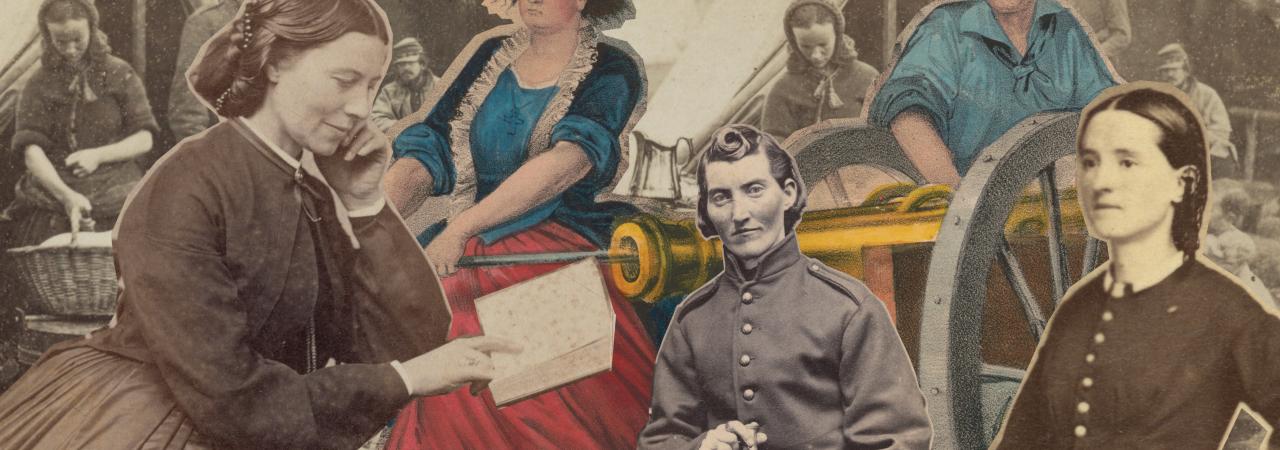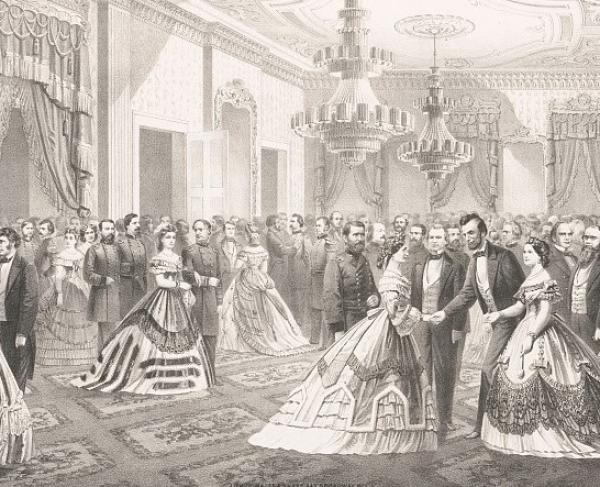Nine Times in American History When a Woman Saved the Day

Although often overlooked, women played a fundamental in the founding of the United States and our nation’s early conflicts. Most women weren't fighting on the front lines (though some were), but in and out of wartime, women were present at every level of society, fighting in other ways for their families, communities and beliefs.
Many of women's contributions to America's first century have been nearly forgotten — but the tides of history have carried a few particularly noteworthy tales to shore. Here are 9 times in American history when a woman saved the day.
1. Prudence Cummings Wright, Revolutionary War
In April of 1775, Prudence's husband joined other patriotic men from their town of Pepperell, Massachusetts, to rise against the British after the war's first shots at Lexington. While the men marched to a nearby town to intercept the British advance, Prudence organized the women left at home into a female militia. Dubbing themselves the "Minutewomen," Prudence and about 30-40 other townswomen dressed as men, shouldered muskets, wielded pitchforks, and marched to the bridge the British would have to cross to enter the town. There, they successfully stopped the British, captured several soldiers, and intercepted vital dispatches regarding troop movements.
2. Mary Ludwig Hays, Revolutionary War
Mary Ludwig Hays, better known as Molly Pitcher, earned fame at the Battle of Monmouth, New Jersey, in 1778. Mary was a camp follower, following her husband in the Continental Army to handle domestic needs like washing, cooking, mending and tending. When Mary's husband was wounded at the Battle of Monmouth, Mary used what she'd learned watching his artillery drills to take his place firing on the British. Soldier and diarist Joseph Plumb Martin wrote of her valor: "a cannon shot from the enemy passed directly between her legs without doing any other damage than carrying away all the lower part of her petticoat. Looking at it with apparent unconcern, she observed that it was lucky it did not pass a little higher, for in that case it might have carried away something else, and continued her occupation."
3. Nancy Hart, Revolutionary War
Nancy was known for various exploits, but one of the most popular stories involved her capture of six British soldiers. According to legend, the soldiers came to Nancy's home to question her about assisting an escaped Patriot. When they demanded food and drink, Nancy obliged with unusual hospitality, all the while discreetly removing the soldiers' muskets from the stack they had formed in a corner. Nancy had passed two of the guns to her 12-year-old daughter Sukey through a gap in the wall before the soldiers noticed. Nancy instructed the soldiers to remain where they were – when one rose to approach her, she shot him dead, wounded another and took the remaining four hostage. Sukey ran to tell her father, who returned to the cabin. The Harts and their neighbors decided to hang the soldiers from a nearby tree. In 1912, an archaeological excavation of the land near the Harts' cabin unearthed six skeletons, suggesting that some version of the myth was true.
4. Lydia Barrington Darragh, Revolutionary War
When the British occupied Philadelphia in the fall of 1777, General William Howe set up headquarters across the street from the Darragh residence and began using the family's parlor for meetings. Because the Darraghs were pacifists, British officials didn't suspect that Lydia was acting as a spy for the Continentals. On December 2, British officials held a private meeting in the Darragh home, ordering the family to stay in their rooms for the duration. Lydia pretended to retire to bed, then covertly listened in, securing important information about plans for a surprise attack against General George Washington's Continental forces in two days. The next day, Lydia used a false pretense to get permission to cross British lines, then informed an American soldier of Howe's plans. When the attack came, Washington's forces were prepared and able to fend off Howe's forces. Suspecting that a member of the Darragh family had warned the Continentals, the British questioned Lydia, who insisted the family had been asleep through the meeting. The British officers let the matter rest.
5. Dolley Madison, War of 1812
On August 23, 1814, the British were headed for the White House. President James Madison was already gone, having charged First Lady Dolley Madison with gathering important documents and preparing to evacuate. When the household spotted British troops on the horizon, Dolley determined to save a full-length portrait of George Washington from likely destruction before departing. This proved no trivial task since the painting was secured to the wall in its frame. Dolley directed the frame to be broken and the canvas removed, rolled up and sent to New York for safe-keeping. Her instincts were solid — after helping themselves to the food stores and best china, British troops burned the White House to the ground. In the end, Dolley had unknowingly saved a copy of Washington's portrait, but her foresight and patriotism in protecting this powerful American symbol is inspiring nonetheless.
6. Harriet Tubman, Civil War
Harriet Tubman escaped slavery on the Underground Railroad in 1850 and proceeded to save the day for over 70 slaves from Maryland in the course of the next 11 years. When the war broke out, she offered her services to the Union as a nurse, spy and scout. On June 2, 1863, Harriet accompanied Colonel James Montgomery and 150 Black Union soldiers on the Combahee River Raid. The group managed to rescue more than 700 slaves during this single assault on plantations along the Combahee River in South Carolina.
7. Clara Barton, Civil War
It's difficult to choose just one time when Clara Barton saved the day — but a strong contender is the time she traveled all night with three army wagons full of supplies to the Battle of Antietam in Maryland. As bullets whizzed by, Barton tended the wounded and organized able-bodied men to perform first aid, carry water and prepare food. She would continue to travel with the Union army throughout the war, carrying supplies and giving aid to Union casualties and Confederate prisoners. Another less daring but no less heroic undertaking of Barton's was to identify soldiers who had been killed during the war, including in some cases locating soldiers' remains and notifying families about their missing loved ones.
8. Phoebe Pember, Civil War
As the matron of Chimborazo Hospital at Richmond, Virginia, Phoebe Pember had an unusual amount of power and responsibility for a woman of her time. Accounts suggest that she wielded this authority competently and compassionately. In one shining example, a newly arrived soldier whom Phoebe judged to be mortally wounded was refusing all offers of comfort save one request: "I want Perry," was his only wish. Phoebe learned that Perry was a friend with whom her patient had marched and camped during his service. Phoebe located Perry at another hospital in the area and had him brought by ambulance to his friend's side. Her patient was able to spend his last few minutes with Perry thanks to her care and resourcefulness.
9. Mary Edwards Walker, Civil War
Though Mary Edwards Walker was a practicing medical doctor when the Civil War began, the Union Army at first refused to accept her credentials. Undaunted, Mary began working in Union hospitals as an unpaid volunteer until the Army recognized her credentials and offered her a position in 1863. While posted in Confederate territory, Mary was known to treat civilians across enemy lines. On one such occasion in 1864, she was captured and arrested as a spy. Mary spent about four months in a Confederate prison in Richmond, Virginia, before being released in a prisoner exchange. In 1865, President Andrew Johnson presented Mary with the Medal of Honor, making her the only woman to receive one to date.
These amazing stories of ingenuity and valor only scratch the surface of women's contributions to America's first century. Learn more about the role of women in America's Wars here.
